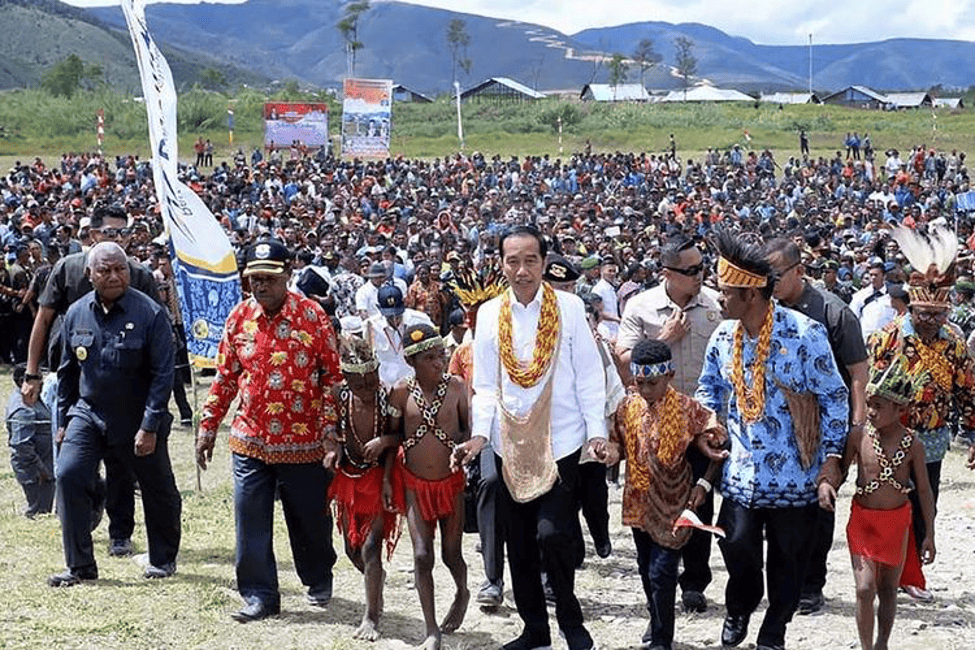Papua – Centric Indonesian development is the approach taken by President Joko Widodo (Jokowi) during his 10 years in office. Including, by encouraging investment and development to Papua.
Among them, marked by the inauguration of the RI-Papua New Guinea cross-border post in 2017, the one-price fuel policy which has an impact on lowering the price of goods in Papua, the construction of the Trans Papua Road. Also, Papua’s success in holding PON in 2021. This development from Eastern Indonesia has succeeded in growing the economy, improving welfare, raising the confidence and optimism of the Papuan people.
This, said Jokowi, is Indonesia’s step towards economic equality throughout Indonesia. With Papua not only being a spectator in this investment flow, but participating and enjoying the direct benefits of the development that occurs on their land.
Expert Staff for Macroeconomics at the Ministry of Investment / BKPM Imam Soejoedi said that the central and regional governments must have one vision and action plan in line in utilizing investment in Papua. Coordination between the central, provincial and district governments is needed to create an integrated vision and action plan.
“Large investments in Papua, such as the construction of a fertilizer plant in Fakfak, the copper smelter industry, to the sugarcane industry and its processing, must be accompanied by the readiness of local human resources. Without the involvement of local people in the supply chain and labor sector, there is a risk that they will only become spectators, while the economic benefits are felt by outsiders,” added Imam.
Therefore, he said, the government needs to work together to prepare skilled workers and unskilled workers through vocational and training programs.
With the right certification, Papuans can get a better income and become part of the workforce in large industries that will develop in their region.
“The goal is clear, which is to create synergy between the central government, provinces, and district / city levels, as well as to encourage capacity building of local human resources (HR) so that they are able to compete and contribute to the growing industry in the region,” he said.
In addition to labor, he also highlighted the importance of preparing the local economic ecosystem. Small and medium enterprises (MSMEs) in Papua must be encouraged to play an active role in the supply chain of large industries. He gave an example, the need for large industries for catering or logistics services can be fulfilled by local businesses. Otherwise, economic benefits will leak outside Papua, because service providers come from other regions.
“The government through the Ministry of Investment / BKPM has facilitated the ease of business licenses for MSMEs, so that they can upgrade and contribute directly to the supply chain of large industries that are developing in Papua,” he said.
He also highlighted Papua’s geographical and socio-economic challenges. For this reason, he added, the central and regional governments must work together in providing supporting infrastructure to create jobs and increase the capacity of local human resources.
“Thus, Papua will no longer be just a spectator in the flow of incoming investment, but instead will become the main actor who utilizes these opportunities for economic progress and the welfare of its people,” he concluded.


